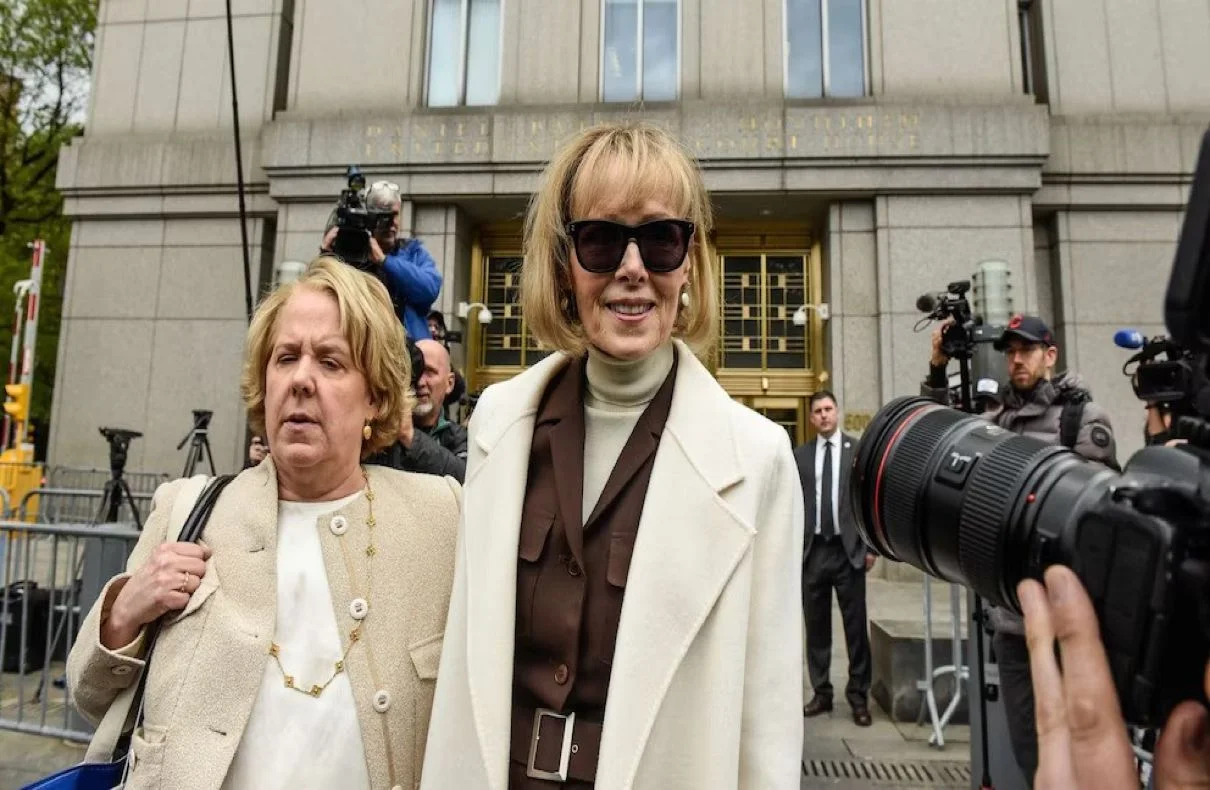
In a highly publicized case, writer E. Jean Carroll has accused former President Donald J. Trump of rape, leading to a defamation trial that has captured national attention. The trial, which is the second in Carroll’s case against Trump, aims to determine the amount of damages the former president must pay. With both parties fiercely contesting the allegations, the courtroom drama continues to unfold.
The case revolves around an encounter that allegedly took place nearly three decades ago. E. Jean Carroll claims that she was raped by Donald Trump in a dressing room at the upscale Manhattan department store Bergdorf Goodman. Carroll first went public with her accusations in 2019, prompting a swift denial from Trump, who claimed he had never met her and labeled her claims as false.
In May of the following year, the first trial in Carroll’s case against Trump took place. The jury found the former president liable for defamation and sexual abuse, awarding Carroll a total of $5 million in damages. However, they did not reach a verdict on the rape claim. Despite the jury’s decision, Trump continued to vehemently deny the allegations and launched a series of attacks against Carroll both during and after the trial.
Ruby Franke: A Shocking Case of Child Abuse
Now, in a second trial, the focus shifts to determining the financial compensation Trump owes Carroll for his defamatory statements. Carroll is seeking over $10 million in damages, in addition to the $5 million already awarded to her. The trial commenced with jury selection, during which Trump’s presence in court drew significant attention. Although his attendance is not required for a civil case, he announced his intention to be present.
During the opening statements, tensions ran high as Carroll’s lawyer, Shawn Crowley, argued that Trump had used his platform as president to tarnish his client’s reputation. Crowley emphasized that Trump’s words carried significant weight and had emboldened his followers to launch smears and threats against Carroll. On the other hand, Trump’s lead lawyer, Alina Habba, contended that Carroll had a duty to minimize the impact of the statements and dismissed her claims as an attempt to gain a financial windfall.
The jury, consisting of a diverse group of individuals including a retired transit worker, a banker, a former teacher, a doctor, and a publicist, has the critical task of determining the amount of damages Trump must pay to Carroll. Their decision will ultimately shape the outcome of the trial and potentially set a precedent for future cases involving high-profile individuals.
As the trial unfolds, jurors will have an opportunity to hear the infamous “Access Hollywood” tape, in which Trump was caught making vulgar comments about women. This evidence is expected to play a crucial role in the proceedings, shedding light on Trump’s attitude towards women and potentially influencing the jury’s decision on the amount of damages to be awarded.
John Deaton: The Former Marine Challenging Elizabeth Warren for Senate
Judge Lewis Kaplan, overseeing the trial, has set clear boundaries for the proceedings. Trump is precluded from offering any testimony or evidence suggesting that he did not sexually assault Carroll or that she fabricated her account. This ruling stems from the previous trial, where the jury found that Trump had used his fingers to assault Carroll and established the fact of sexual abuse.
Carroll’s lawyer argues that Trump’s defamatory statements have had a long-lasting impact on her client’s reputation. The trial aims to determine the extent of the harm caused and the appropriate compensation for the damage inflicted. Carroll’s legal team contends that a substantial punitive damages award would not only provide restitution for their client but also serve as a deterrent against similar misconduct by public figures.
The trial is not just a legal battle but also a clash of narratives. Carroll maintains that she was a victim of sexual assault, while Trump continues to deny any wrongdoing. The courtroom proceedings will test the credibility of both sides, with witnesses and evidence playing a pivotal role in shaping the jury’s perception of the events that transpired.
Once the trial concludes, the jury will deliberate and reach a verdict on the amount of damages Trump must pay to Carroll. This decision will serve as a significant moment in the ongoing struggle for justice and accountability. Regardless of the outcome, the trial has already made a profound impact on the national conversation about sexual assault, defamation, and the power dynamics between individuals in positions of influence.
As the second trial in E. Jean Carroll’s case against Donald Trump unfolds, the truth surrounding the allegations of rape and defamation continues to be unveiled. The courtroom drama, with its high stakes and emotional intensity, has captivated the nation. The jury’s determination of the damages Trump must pay will not only provide closure for Carroll but also shape the future discourse on accountability and the treatment of survivors of sexual assault.
